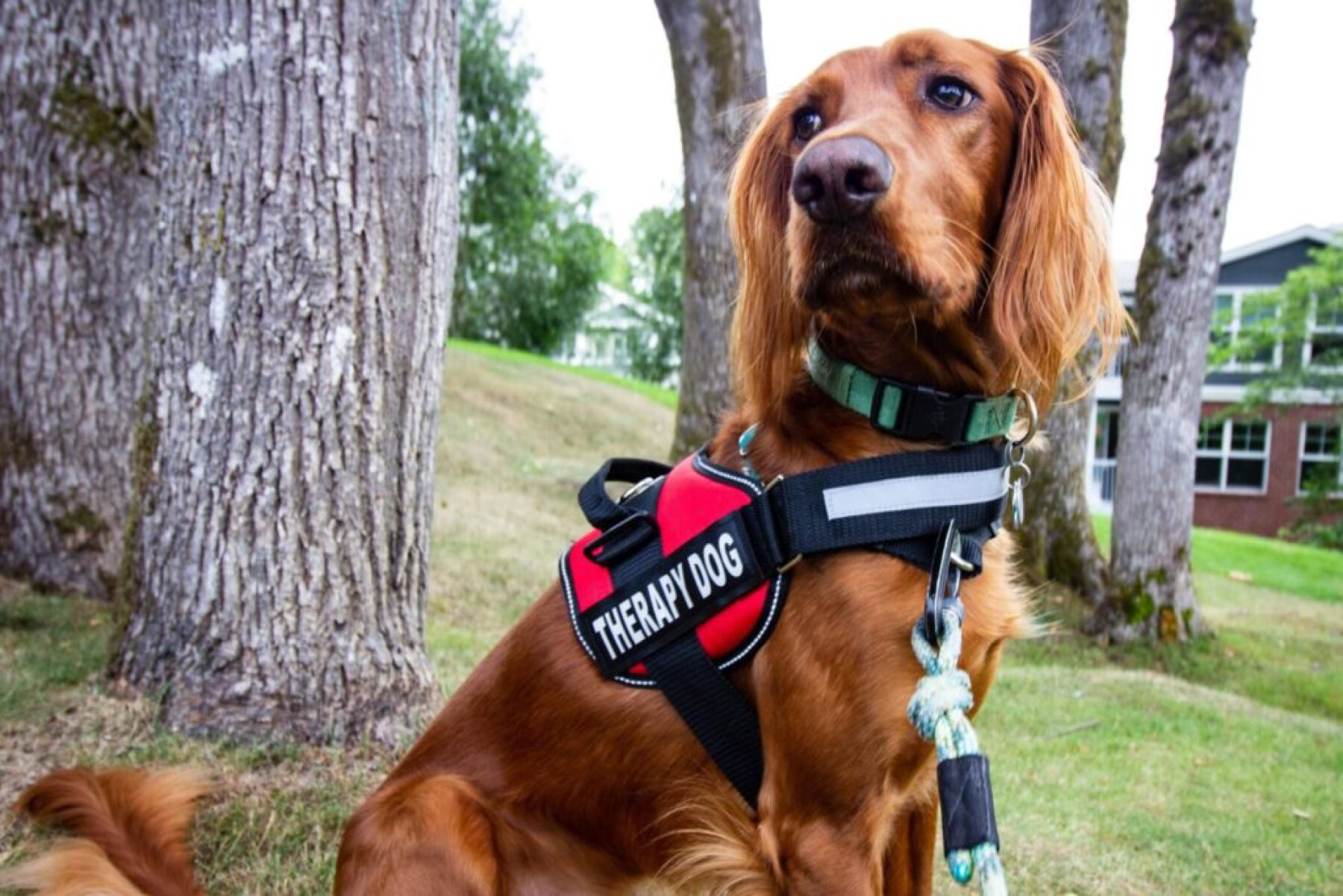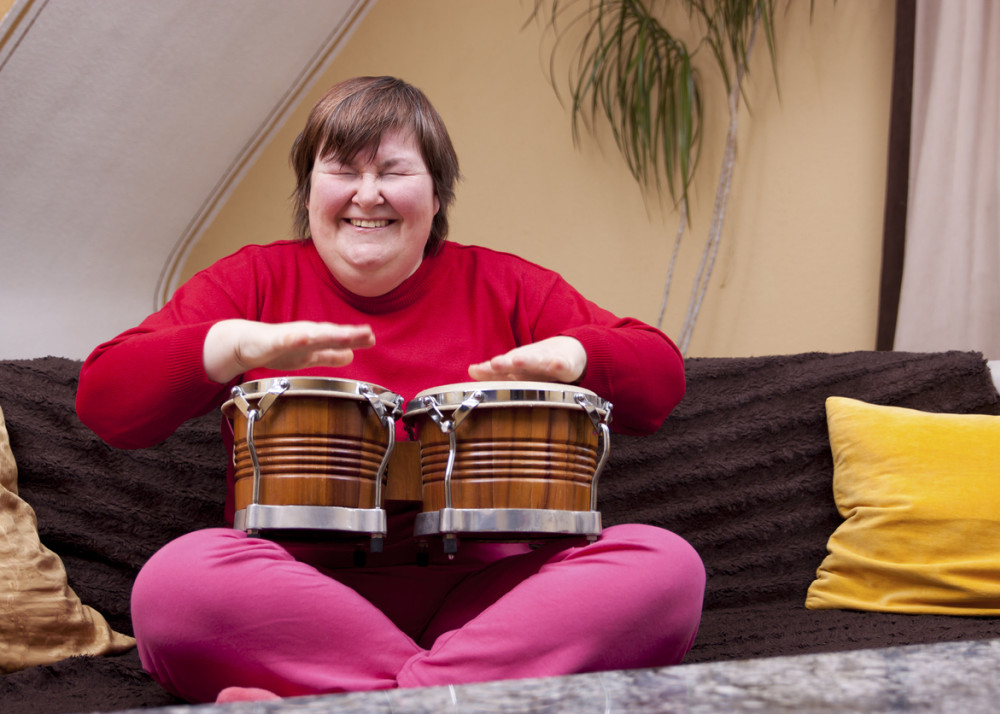The Benefits of Pet Therapy
11 September, 2020
Pet therapy isn't just about getting cuddles from cute dogs or cats. Sure, that's one of the upsides, but pet therapy has many proven health benefits.

Since its introduction in the early ‘90s, pet therapy has quickly gained wide acceptance within the world of psychology. While the concept of pet therapy is relatively new, the benefits of animal interaction were observed as far back as the 19th century by none other than Florence Nightingale!
In this article, we look at the health and emotional benefits of therapeutic animals for the elderly, people with disabilities and people living with mental health issues.
What is pet therapy?
In some countries, ‘emotional support animals’ can go anywhere with their humans, including in restaurants and on planes. Although emotional support animals are not recognised in Australia, pet therapy is commonly used in Australia to help a person to relax and rebalance their emotions.
In pet therapy, an animal is trained for the purpose of guided interactions with people. The animal’s handler is present at all times to ensure that the animal behaves appropriately and knows what to do.
Pet therapy is sometimes referred to as animal-assisted therapy (AAT) or animal-assisted activities (AAA). There are some crucial differences between the two. AAT is a more formalised approach to pet therapy, which helps participants reach set goals. AAA is a lot more casual - the animal essentially plays with people for comfort.
What types of animals are used in pet therapy?
Companion dogs and companion cats are most common. However, some people receive pet therapy from more unusual animals, such as horses, fish, birds, pigs, and even reptiles.
The animal used can depend on the individual therapeutic goals of the person seeking treatment, but also on availability and the person’s preference.
What are the benefits of pet therapy?
Some of the many positive benefits of pet therapy include:
Improved moods
Better cognitive function
Improved interactions with other people
Less agitation
A clearer mind with less confusion
Reduced levels of depression and anxiety
Lower levels of loneliness and boredom
More energy
Greater willingness to exercise
Help keeping an active routine
Increased mobility
A greater willingness to socialise
Increased self-esteem
Less stress
A better quality of life
These benefits aren’t only ideal for the people receiving therapy - a person's carers, friends and family will also experience positive outcomes. When the participant is happy and their behaviour is more effectively managed, life is easier for those around them, too!
What does the science say?
Plenty of data points to the fact that therapy animals reduce stress and discomfort. But, is this measurable? Yes it is, by way of testing whether interacting with therapy pets increases a person’s endorphins in the body.
So, what are endorphins? These brain chemicals are the ones that make you feel good. Whether working out or indulging in a tasty treat, endorphins are released. The same happens when you engage with a therapy dog or other pet. In fact, endorphins even bind to and activate opioid receptors in your nervous system, having the same effect as a painkiller.
University of California Los Angeles (UCLA) has collated some fascinating studies detailing the benefits of animal-assisted therapy for a range of different groups.
How does pet therapy help the elderly?
Pet therapy can help ease some of the frustrations, loneliness and feelings of helplessness that seniors often experience. It can also help older people to feel like they have a sense of purpose and caring responsibilities, which form an essential part of living a fulfilling life in your later years.
Sometimes, companion dogs and other therapy animals are even used in palliative care.
How does pet therapy help people living with dementia?
Pet therapy can be wonderful for people with dementia, and there are many positive health benefits, both physical and emotional, as detailed in our benefits section above.
One study by BMC Psychiatry into how dog therapy can help people with dementia and Alzheimer’s had fantastic results. All participants became more social and there were fewer behavioural issues reported after their interaction with the pets. They also experienced a reduction in neuropsychiatric symptoms.
After interaction with therapy animals, people with dementia experience greater engagement with their other activities and interactions. This has many knock-on benefits such as slowing cognitive decline, lower levels of anxiety and depression, and improved memory recall.
What is pet therapy for people living with disabilities?
Just like the individuals living with them, disabilities themselves are so varied. Here are some of the many ways that people with disabilities benefit from pet therapy:
People with sensory disabilities may communicate more easily with an animal. The experience can encourage more interaction in future with other human beings.
People who are about to receive medical treatment or undergo surgery may find that they are far less anxious about it after enjoying some pet companionship.
Therapeutic horse riding can be fantastic for those with lessened motor function, such as people with cerebral palsy or MS. This is because it can aid in improving balance, posture and mobility over time.
People with autism of all types can use animal-assisted therapy to help them learn vital social and communication skills, such as empathy and expressing love.
For people with mental health issues, the companionship offered when spending time with animals can help combat feelings of depression and low self worth.
To discuss whether pet therapy could help you or someone you know, please don’t hesitate to contact us.
Is animal therapy effective?
Animal therapy and pet therapy is effective in that it has achieved success in several studies. As we’ve detailed above, there are a multitude of positive psychosocial results that can be expected.
Are there any risks to pet therapy?
Experiences of pet therapy are usually extremely positive. At Focus Care, we use properly trained animals that are immunised and free from illness. We also adhere to strict standards of sanitation and safety.
Our therapy animals are supervised at all times and are trained to interact appropriately, and interpret and respond to particular human behaviours.
Prior to engaging pet therapy services, you should take into consideration whether or not you or the person receiving the therapy will react well to animals. Are they afraid or allergic to them? It’s best to find out.
Pet therapy in the days of coronavirus
During lockdowns, people may be feeling lonelier and more isolated then usual. Interaction with animals, even visually, can assist in boosting happiness, and reducing anxiety and depression during this time. Whilst our in-person pet therapy is on hold during the NSW and VIC lockdowns, we have launched online pet therapy! Contact us today to find out more about this service.
 How can Focus Care help?
How can Focus Care help?
Our team is passionate about finding ways to bring joy and comfort to the lives of our clients.
We are thrilled to offer pet therapy services and believe in their power to do good. One of our pet therapy dogs will attend your home with their owner and can either interact with you at your house or at a nearby park.
Pet therapy is available under your NDIS Plan, Home Care Package or can be paid for privately. If you want to discover how pet therapy could benefit you or someone you care about, we’d be happy to discuss this with you.
Get in touch
Contact us today if you’re interested in integrating pet therapy into your home care services. Simply call us on 1300 941 740 or fill in the form on our contact page to discuss this further.




